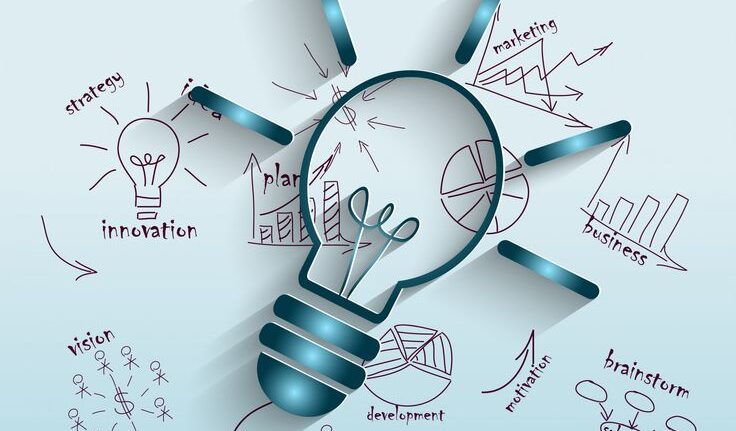During my school years, my mother called me ‘a broken-nosed king in the country of the noseless’. Because when I get ordinary marks, it turns into a high score in the classroom. But I despised studying all subjects except one: chemistry. Because, while each educator uses lecture notes, a chemistry teacher educates us by showing numerous chemical reactions and experiments. As a result, I can still properly recall what the periodic table says: Abdul Azeez, a postgraduate student at Calicut University in Kerala. Here, experimental learning sparked Abdul Azeez’s interest in chemistry. Really It helps students obtain deeper knowledge. Its significance can be summed up in wonderful words by Xunzi, a philosopher from 2000 years ago. He said,
“What I hear, I forget.
What I see, I remember.
What I do, I understand.”
But what is the situation in our educational system? Education is the single concept that has not progressed along with the rest of our culture. It was built years ago when books, libraries, and knowledge were available, and we still force children to memorize school materials now, even though everything they need is right at their fingertips. Students were evaluated at school using standardized tests; at work, they were evaluated based on their job, productivity, and talents. It means that students are assessed based on a situation they will not face in the future. Schools actually teach students for examinations, not for life. If you disagree with this statement, explain why so many adults who have completed mathematics still sting on debit cards. They are unable to apply what they have learned because they solely studied for exams. The true problem is with our education system. We were instructed from a young age that you need to study hard in order to pass exams and obtain regular employment. Today, when we consider the future of jobs, most of us believe artificial intelligence will take over. But such a technological revolution is not new. If you return to the pages of annals, you will see that industrialization provided more work opportunities than it lost. But the situation differs when AI introduces new work opportunities; it requires a diverse range of skilled individuals to operate. So we need to emphasize talents and skills instead of schooling. Because machines can retain and remember knowledge better than humans, they cannot learn the same skills as humans.
Although the majority of institutions follow traditional paths, some, such as High Tech High in San Diego, have established their own unique paths. There are no bells, periods, or exams. Rather, exams are group projects, and the lecturers are experienced coaches. Then it moves from a teacher-centered to a student-centered education, from focusing knowledge to prioritizing skills.

Parental norms in Indian society
There is a story in black oral tradition concerning the distress of receiving incorrect answers. As to the story, a mother is assisting her child with arithmetic problems. She read the problem and asked: If John has five apples and gives two to his friend, how many apples does he have left? “Five apples,” he said passionately but incorrectly. She became frustrated and asked the same question. Once again, the incorrect response was provided. In fact, the child is under pressure to say the correct answer. His incorrect response was met with ridicule and frustration. Similarly, in our society, a student receives negative replies when he achieves low grades, whereas good grades receive positive answers.Therefore, in our society, a successful student is described as someone who obtains high grades. Although these grades are significant, they never define who they are. So several educational institutions have abandoned traditional grading systems. For instance, Brown University. They prioritized students over established grading systems by eliminating GPAs and class rankings.
Usually, Indian parents decide what their child wants to be by rejecting his career ambitions and aspirations. Einstein’s brilliant quote demonstrates this norm. He said that ‘everybody is a genius. But if you judge a fish by its ability to climb a tree, it will live its whole life believing that it is stupid’. This means that each child has strengths and limitations. Instead of focusing on his imperfections, parents should acquaint their children with all streams, courses, and new technological innovations and free them to opt for what they desire.
How should the educational model be?
Essentially, the obsolete memorizing approach should be replaced with a well-rounded model that promotes societal growth, including intellectual, emotional, and social development. In addition, in the digital age, ethical learning should be underscored. Because the current educational system produces students who are short-tempered, anxious, and self-centered. Further, this school system has a negative impact on the students mental health. Suicide is the second-greatest cause of death among teenagers and college students aged fifteen to nineteen. Why are our youngsters experiencing mental health issues and suffering in school? The common problem was that each student was handled and assigned the same job in a single subject for the same period of time. Such treatment not only strips a student of their personality, but it additionally deprives them of several employment opportunities. That is why it is considered archaic. To solve this difficulty, we need to implement personalized learning. It allows one to determine his skills, shortcomings, passions, and ambitions. This education will not cause the student to become depressed; rather, it will produce students who are creative and inventive.










Post Comment